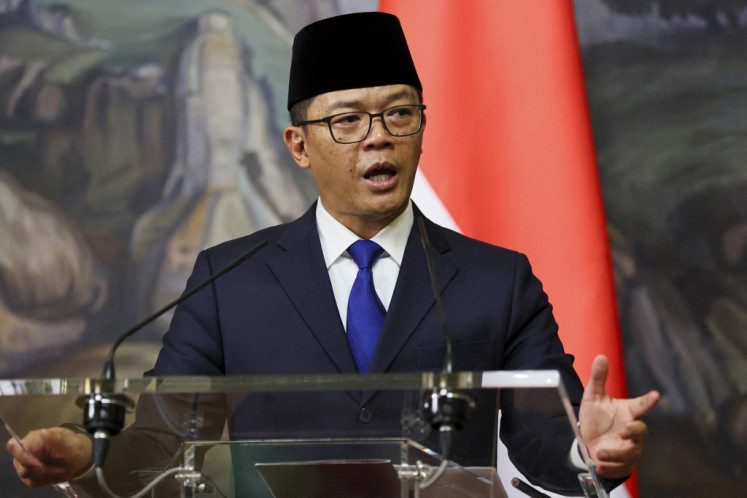Popular Reads
Top Results
Can't find what you're looking for?
View all search resultsPopular Reads
Top Results
Can't find what you're looking for?
View all search resultsPrivate hospitals’ reluctance hurts JKN
The death of Tiara Deborah Simanjorang after the alleged negligence of a private hospital has shown that the low-income people still lack access to health care services
Change text size
Gift Premium Articles
to Anyone

T
he death of Tiara Deborah Simanjorang after the alleged negligence of a private hospital has shown that the low-income people still lack access to health care services.
Her death has also raised concerns over whether the government can successfully cover every citizen in the country under its national health insurance (JKN) program by 2019, as expected.
Deborah, a four-month old baby, died in hospital as her parents sought a place in a hospital that partnered with the JKN. Having suffered from severe breathing difficulties, Deborah finally passed away after Mitra Keluarga, a private hospital in Kalideres, West Jakarta, refused to transfer her from the emergency room to the pediatric intensive care unit (PICU).
Deborah’s parents, Rudianto Simanjorang and Henny Silalahi, were unable to make the full advance payment, a prerequisite for their daughter’s treatment at the facility.
“When my husband was about to register our daughter for treatment at the PICU, he said that we had a BPJS card. But an official said the hospital could not accept payment using the card because it had not yet partnered with the BPJS,” Henny said on Monday, referring to the Healthcare and Social Security Agency (BPJS), which manages the JKN program.
Existing regulations stipulate that hospitals and medical facilities, both public and private, are prohibited from rejecting patients seeking medical help for reasons of unpaid bills or medical expenses.
Health Minister Nila Moeloek said during an emergency situation, hospitals must prioritize the delivery of medical treatment to patients instead of questions about financial-related matters.
“There is a regulation that outlines that during an emergency situation, they should put aside funding-related matters [and immediately administer treatment to patients],” she said on Monday.
BPJS Watch advocacy coordinator Timboel Siregar said what had happened to Deborah provided further proof that the government had failed to provide adequate healthcare services for all people.
“It is impossible for the government to work alone to implement the JKN program. It must work together with private hospitals,” he said on Tuesday.
Timboel said that in Jakarta, only 90 of the city’s 189 private hospitals, or less than 50 percent, had agreed to join the JKN.
He said many private hospitals were reluctant to join the JKN because health facilities and medical workers were paid using Indonesia Case Based Groups (INA-CBG) tariffs that were too low compared to the costs of procedures.
Previously, health facilities and medical workers were paid using a fee-for-service reimbursement system, in which they would be paid for each treatment they gave.
The system has been replaced by INA-CBG, a diagnostic reimbursement system stipulated in Health Ministerial Regulation (Permenkes) No. 59/2014 on healthcare tariffs.
According to Presidential Regulation (Perpres) No.19/2016 on National Health Insurance, only state-run hospitals, including regional general hospitals (RSUD) and military and police hospitals, are required to partner with BPJS for the JKN program.
Unfair tariffs are among the problems hampering the JKN program, including premiums that are not in line with the actuarial rate of premiums each participant should pay. Such unbalanced premiums have led to the program’s constant deficit, which stood at Rp 9.7 trillion in 2016.
“It is beneficial for private hospitals to cooperate with the BPJS because if they refuse to partner, they might encounter difficulties getting patients when every person in Indonesia is covered by universal health care by 2019, as targeted,” said Irfan Humaidi, a BPJS spokesman. (yon)









